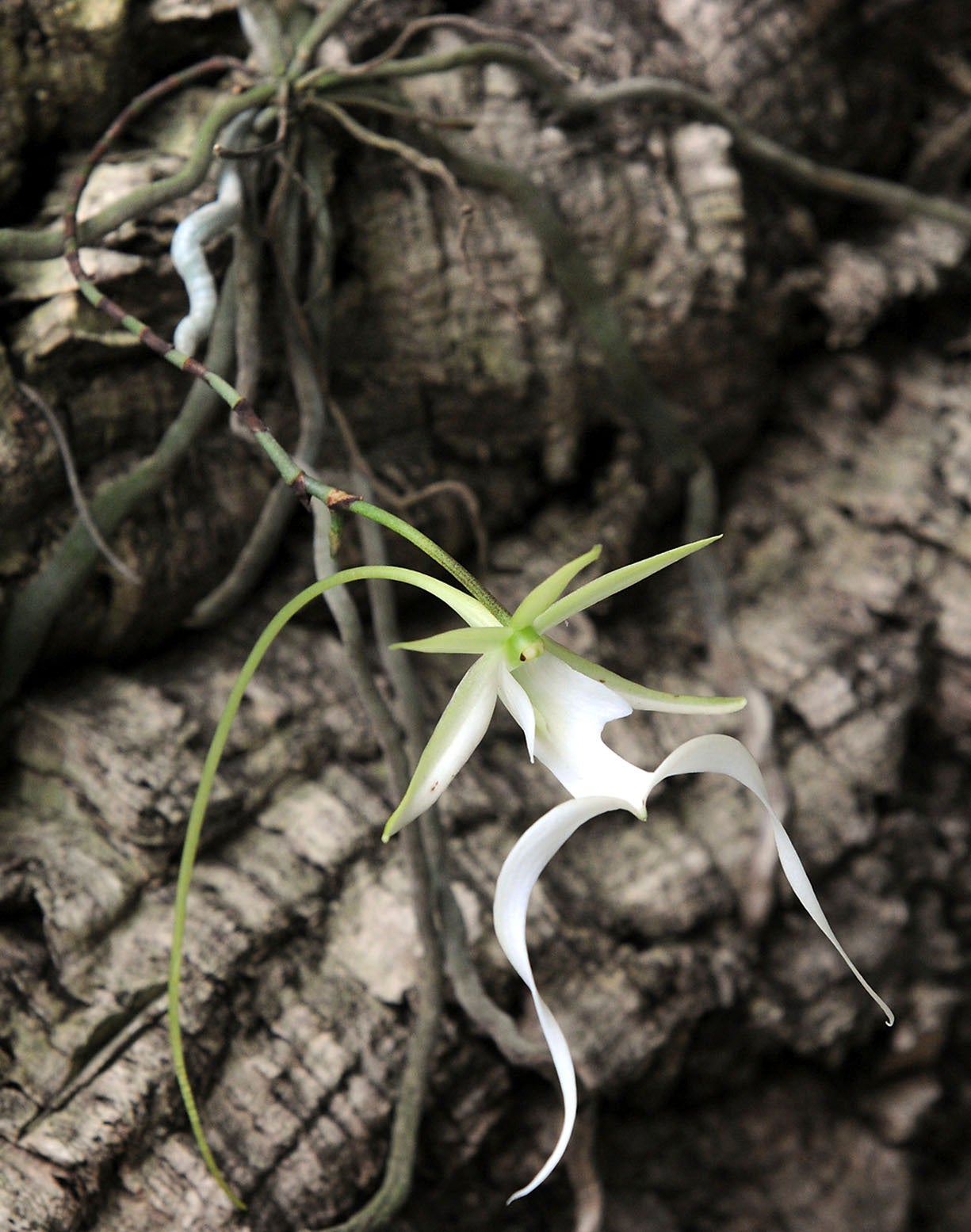Environmental groups sue US over sluggish pace in listing the rare ghost orchid as endangered
The rare ghost orchid found mainly in Florida and Cuba should be immediately protected by the U.S. as an endangered species, three environmental groups claimed Wednesday in a lawsuit arguing that federal officials are unduly delaying a decision

Your support helps us to tell the story
From reproductive rights to climate change to Big Tech, The Independent is on the ground when the story is developing. Whether it's investigating the financials of Elon Musk's pro-Trump PAC or producing our latest documentary, 'The A Word', which shines a light on the American women fighting for reproductive rights, we know how important it is to parse out the facts from the messaging.
At such a critical moment in US history, we need reporters on the ground. Your donation allows us to keep sending journalists to speak to both sides of the story.
The Independent is trusted by Americans across the entire political spectrum. And unlike many other quality news outlets, we choose not to lock Americans out of our reporting and analysis with paywalls. We believe quality journalism should be available to everyone, paid for by those who can afford it.
Your support makes all the difference.The rare ghost orchid found mainly in Florida and Cuba should be immediately protected by the U.S. as an endangered species, three environmental groups claimed Wednesday in a lawsuit arguing that federal officials are unduly delaying a decision.
The lawsuit filed in Florida federal court contends the U.S. Fish and Wildlife Service missed a January deadline on the orchid's status and now doesn't plan to make a decision until possibly late 2026.
“We regret that we must file this lawsuit, but the world famous and critically imperiled ghost orchid is out of time,” said George Gann, executive director at The Institute for Regional Conservation. “Only the Endangered Species Act can provide both the deterrence against poaching and the resources needed to respond to growing threats from hurricanes, invasive species, and counterproductive management decisions such as increased oil exploration."
The other plaintiffs in the lawsuit are the Center for Biological Diversity and the National Parks Conservation Association. The Fish and Wildlife Service, a part of the Interior Department, did not immediately respond to an email seeking comment.
Ghost orchids are found mainly in the Big Cypress National Preserve, the Florida Panther National Wildlife Refuge, Fakahatchee Strand Preserve State Park and Audubon's Corkscrew Swamp Sanctuary, all east of the Naples area. They are also found in Cuba, in certain restricted places.
“The ghost orchid, with its long, delicate petals and spur of nectar has become a symbol of the South Florida landscape,” the National Park Service says on its Big Cypress website. “Habitat destruction and hydrologic changes due to human development in South Florida have been partially responsible for the decline of ghost orchid populations. Also, over-collecting has had a negative impact on this special plant.”
According to the lawsuit, the ghost orchid population has declined by more than 90% globally and by up to 50% in Florida, with only about 1,500 plants remaining in Florida. One factor is the orchids are stolen by thieves because of their rarity and beauty, which was chronicled in Susan Orlean's book “The Orchid Thief” and made into the “Adaptation” film. The plants are often sold online.
The lawsuit puts their attraction this way: "The roots and short stem of the orchid are so well camouflaged on trees that the white flower may seem to float in mid-air, hence the name ghost orchid.”
Hurricanes such as Ian, which barreled into southwest Florida in 2022, have contributed to the loss of orchids, the environmental groups say. Sea level rise and wildfires worsened by climate change is another threat, they say.
The lawsuit seeks to force the Fish and Wildlife Service to make an endangered species decision on the ghost orchid within a 12-month timeline, which the environmental groups say it has already missed.
“Delaying protections will make it that much harder to draw ghost orchids back from the brink of extinction,” said attorney Elise Bennett, Florida and Caribbean director at the Center for Biological Diversity. “These spirits of the swamp need all the help they can get in the face of habitat destruction and increasingly intense storms.”